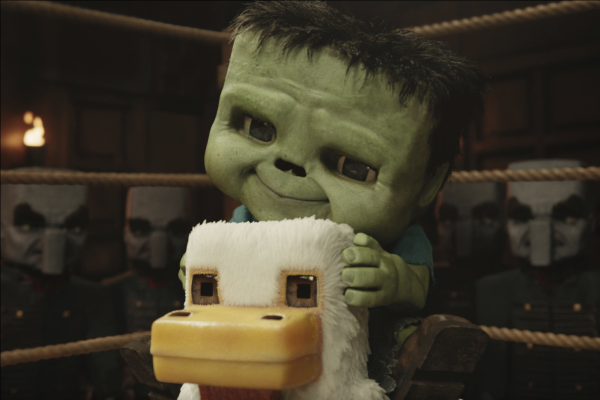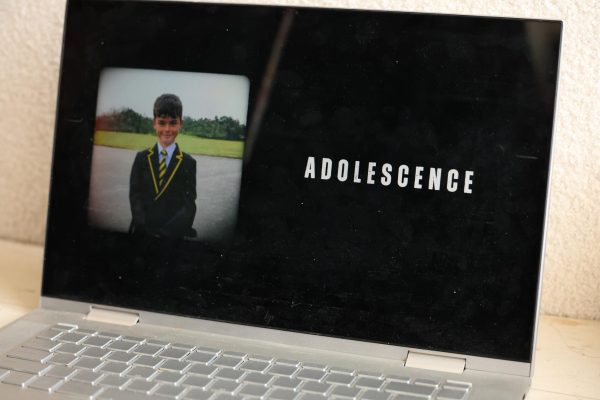Childhood Stardom and the Trauma of Fame
Audiences have been falling in love with the content produced by young celebrities for generations. Both in today’s world of social media “influencing,” and in past eras limited to television programming and movies, young stars are tasked with navigating stardom while remaining empathetic. Different eras present stars with different hurdles that make this task all the more difficult.
In regards to the “weight” of fame on child stars, an argument can be made for both sides. When we hear the phrase “child star,” a few distinct faces come to mind, ones that took the world by storm and were vaulted to iconic status. Given the nature of entertainment and the technological standing of the 1990s, 2000s and early 2010s, the stage was set for a select few individuals to be launched into intense and overwhelming stardom. Social media was not a factor, and kids looked to The Disney Channel on television for their entertainment fix. The wealth of streaming platforms we have today was also not a factor, narrowing your options to just a few shows from a few channels. Without all the background noise, the shows we had at our disposal were immensely impactful. America zeroed in on a select few stars, such as Miranda Cosgrove from “iCarly,” and subjected them to scrutiny and idolatry to an extent that is arguably unparalleled today.
Since these stars gained the spotlight from roles they landed, they were subject to contracts that were incredibly limiting. Dealing with stardom under these confines made the weight of their fame feel significantly heavier. This weight is especially heavy as you grow up, and your sense of self becomes increasingly at odds with your contractual obligations. Disney actors and actresses were often limited in wardrobe, social media, tone of voice and were subject to a moral clause. The buildup of pressure has played out in a rebellious streak by former squeaky clean child stars, most notably Miley Cyrus and Lindsey Lohan. Though one can only know the weight of fame by living it, this rebellious phenomenon points to the pressure of fame at such a formative age to be immense.
In today’s age of social media, streaming platforms and podcasts, stardom has been turned on its head. The freedom to produce content wherever and whenever possesses its own pressure. Back in the 2010s, social media was much less commercialized and professional; it held less potential importance for a celebrity’s brand image.
Now, social media is often the very medium in which celebrities get their birth. Though stars like Cyrus probably would have appreciated an outlet like social media towards the end of her Disney stint, this option comes with pressure to always post. Today’s top influencers are presented with a shocking amount of collaborative opportunities by brands, networks and fellow influencers; given the financial benefits these collaborators are ready to dole out, every move holds tremendous weight. Past Disney stars may have resented their restrictive contracts, but today’s stars may resent the lack thereof for the pressure to sell out.
“Selling out” can take form in many ways. Traditionally, stars will take financially viable opportunities that contrast their integrity, diminishing brand image and future opportunity. Another indirect way of selling out that can extend to all of society is premature sexualization. Though the sexualization of young stars should be an autonomous matter, the standard for appropriate sexualization at each age has become greater. In the age of TikTok, teenagers’ self-worth is so intertwined with their following online, and this following is contingent on such a brief interaction. As predicted by Andy Warhol, “Everyone will be world-famous for 15 minutes,” which is jarringly accurate in light of TikTok’s algorithm. Today, teen celebrities are leaning into the sexualization of themselves, causing a trickle down effect that extends to all.
Premature sexualization is something that young stars have had to deal with forever. But, social media accelerates this through the interconnected nature, the lack of privacy and the unattainable beauty standards. For starters, young stars face a new level of scrutiny now that fans can react live to any moves, and others can chime in, creating a discord between individuals for all to see. An example of this would be the criticism that Millie Bobby Brown faced for her relationship with Jacob Sartorius at just age 13.
Second, celebrities have increasingly little privacy. An example would be Billie Eilish, whose fashion sense she refers to as a “security blanket.” On a talk show, Billie had to answer for a viral photo taken of her in a tank top, being that she normally wears baggy clothes.
Finally, a wealth of statistics have been published that find that the majority of teenagers feel social media has ramped up expectations of their own appearance and that this phenomenon is influenced by celebrities. Though celebrities may fuel the beauty standards, the extent to which they must go via editing, makeup or lifestyle can not be healthy and will fuel insecurities.
Growing up in the spotlight might be a surreal experience, one that can be incredibly difficult to manage regardless of the era. As stated by psychologist Donna Rockwell, fame gives someone a certain degree of attention that makes it difficult to have appropriate empathy for others. Celebrities can often spiral when circumstances change, especially when thrusted into the spotlight before they are cognitively developed. It is hard to quantify whether the “weight” of fame for previous stars is heavier than that of today’s stars, but I would just like to acknowledge how incredibly difficult fame is, and that we should give young celebrities the benefit of the doubt.













































































































































































































